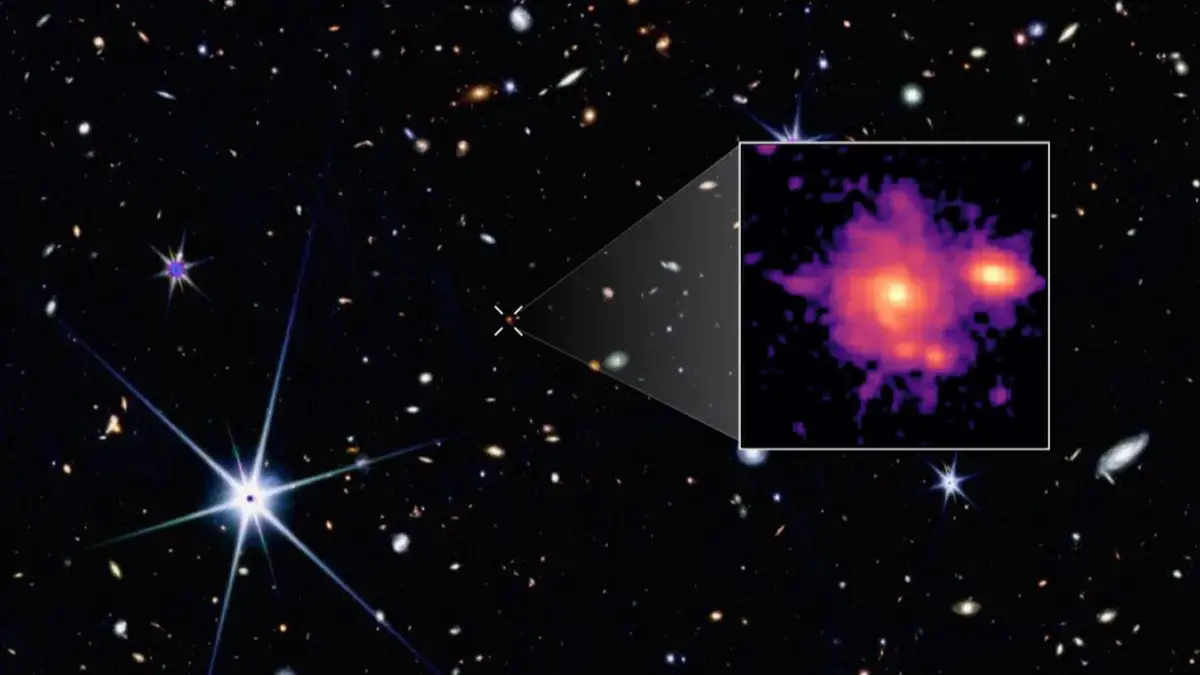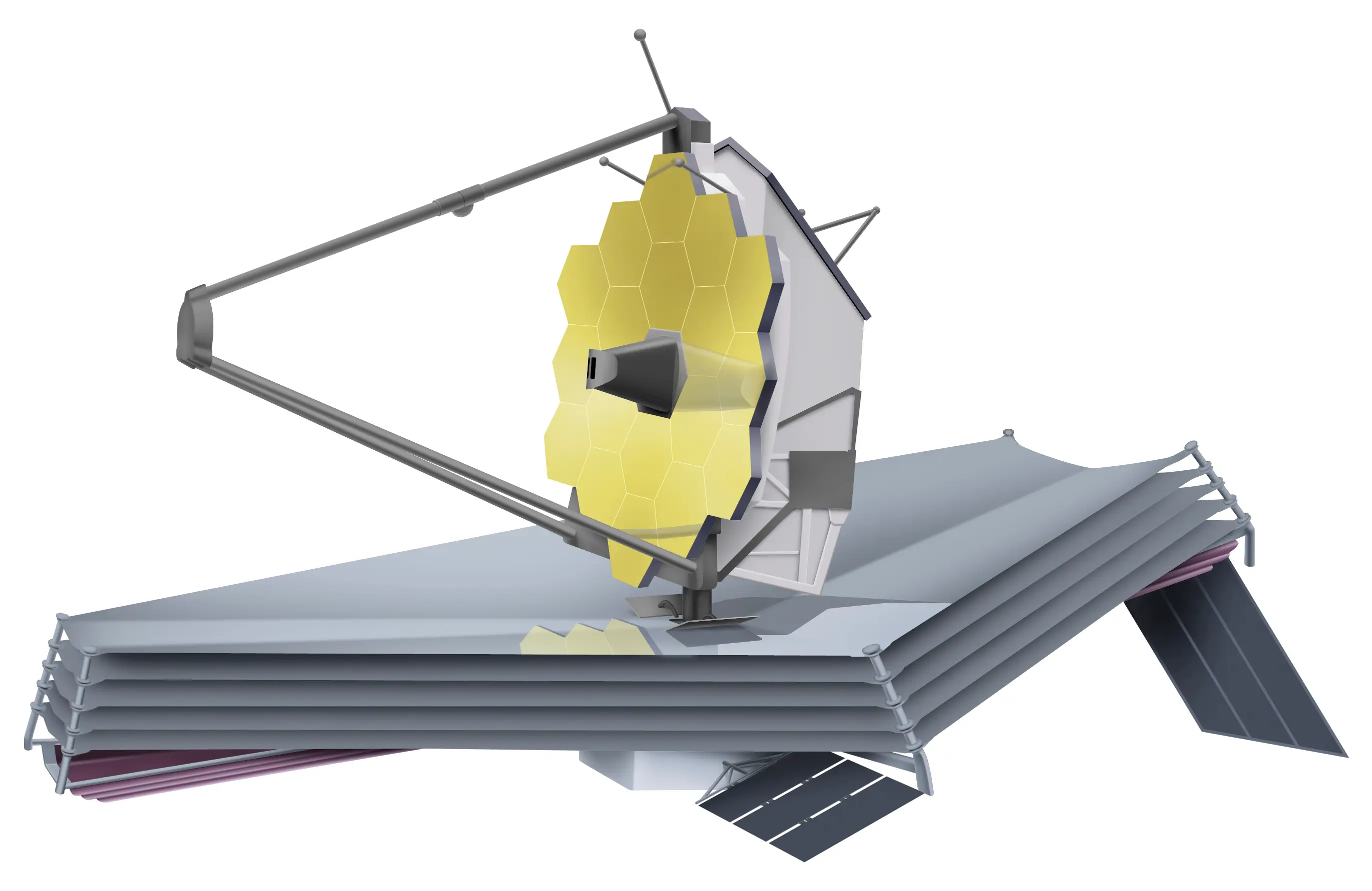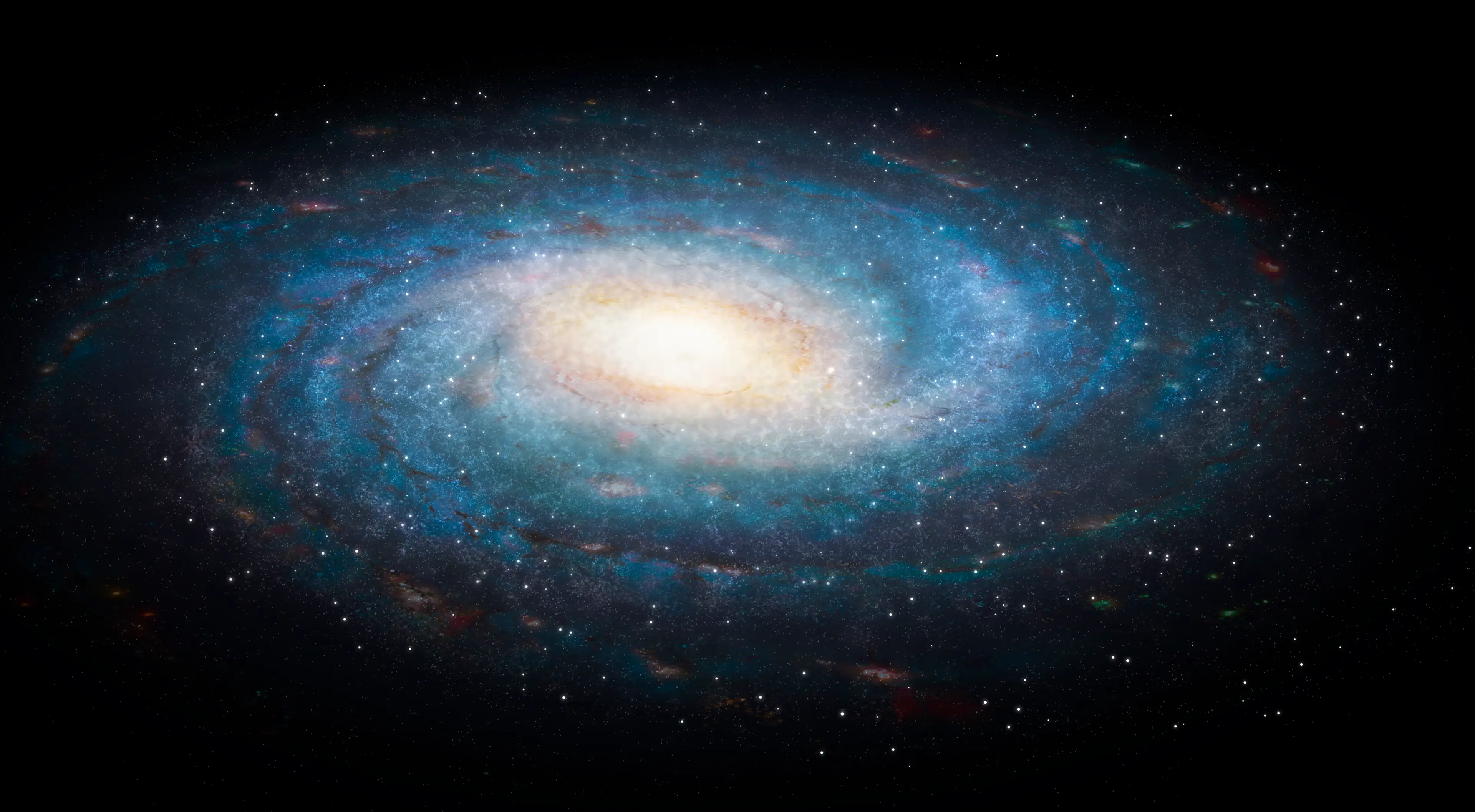
Before the Big Bang created the universe all matter was compressed into an incredibly small and dense point before it exploded out into billions of galaxies.
Among these was the Milky Way, the galaxy which is home to billions of stars including our own Sun and the planet we all live on.
This is our galaxy, there may be many like it, but this one is ours.
Speaking of galaxies like the Milky Way, that wonderful implement known as the James Webb Space Telescope has found another galaxy which looks like the 'long-lost twin' of our home.
Advert
Live Science reports that new images captured by that magnificent telescope of events about a billion years after the Big Bang (we're about 14 billion years on from it now) have spotted a galaxy with distinct spiral arms.
Experts reckon it's the most distant 'twin' galaxy to our own Milky Way that's ever been discovered, and how cool is it that we've got technology that can observe events 13 billion years into the past?
Of course, that's all because of the speed of light, meaning that basically everything we see in space is something that's already happened since they're light years away.
Even our Sun is eight light minutes away, meaning it could pop out of existence and we on Earth wouldn't notice for about eight minutes.

Even our Sun is eight light minutes away, meaning it could pop out of existence and we on Earth wouldn't notice for about eight minutes.
This long-lost twin of the Milky Way has been named Zhúlóng, which was a mythical Chinese dragon with the face of a human that created the day and night by opening and closing its eyes.
A study of this faraway galaxy found that it's older than the Milky Way, and lead author Dr Mengyuan Xiao remarked on how similar it was to our own galaxy.
She said: "What makes Zhúlóng stand out is just how much it resembles the Milky Way, both in shape, size, and stellar mass."
While Zhúlóng might be the elder sibling, the Milky Way has since outgrown its twin, assuming that the other galaxy hasn't changed drastically in the past 13 billion years worth of events, the light of which has yet to reach the penetrating gaze of the James Webb Space Telescope.

Zhúlóng's star forming disk as about 60,000 light years wide, whereas the Milky Way boasts a beefier disk size of 100,000 light years.
The faraway galaxy is thought to contain about 100 billion solar masses, while our galaxy has a whopping 1.5 trillion.
Given the galaxy's similarity to our own, what are the chances that billions of light years away another species is out there on a planet orbiting one of Zhúlóng's stars looking back at the Milky Way?
Since we just found some of the best evidence that there's life on other planets there's a decent chance that someone out there in the depths of space is looking back at us, even if they're so far away that all they can see is our galaxy before humans even existed.
Topics: Space, James Webb Space Telescope, Science